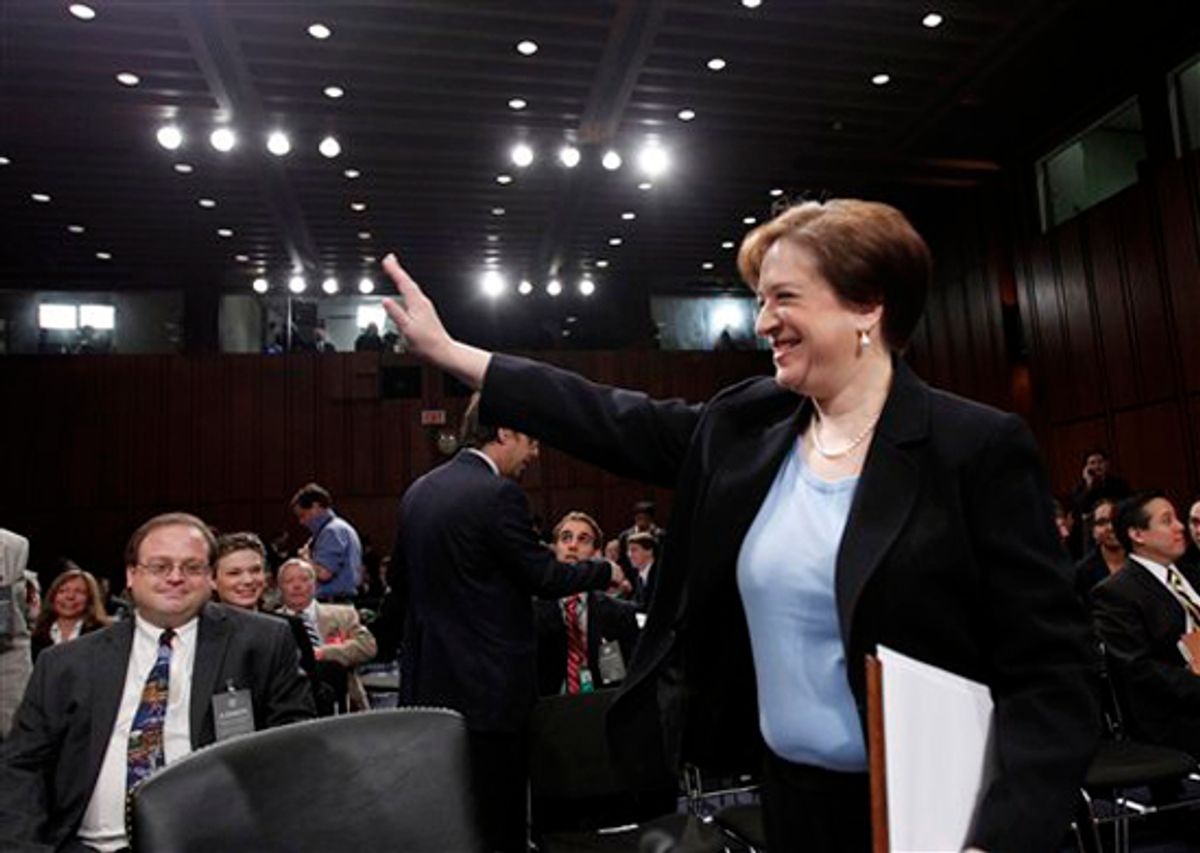UPDATED
By the third day of the Elena Kagan hearing before the Senate Judiciary Committee, the Washington press corps had pretty much moved onto other things. Two days earlier, journalists had crowded the room where Kagan, President Obama's nominee to replace retiring Supreme Court Justice John Paul Stevens, faced committee members in what was billed as her only remotely serious public discussion of the court and her likely role on it.
Talking Points Memo mentioned the journalistic drop-off in a terse item titled "Media Losing Interest?" I promptly tweeted along with a comment about "Journalism's short attention span" -- and got a Twitter reply from Howard Weaver, who said, "I wouldn't staff Kagan hearings if it were my call. It's all Kabuki theater; if any news manages to emerge, it will be reported."
Howard Weaver is former vice president of news for the McClatchy Co., and when he says something like this it's worth thinking about. Keep in mind that McClatchy, which bought Knight Ridder a few years ago and has faced the same financial woes as the rest of the industry, maintained the high standards of the Washington bureau that consistently outclassed the rest of the Washington press corps in covering the run-up to the Iraq war (mainly by letting reporters do their jobs, not serving as bended-knee stenographers for the Bush administration).
So I did think about it, and ended up mostly agreeing with him. There is little point to sending platoons of reporters to largely ceremonial events where the players all know their tedious roles and do their absolute best not to stray into territory that might conceivably make actual news. In Kagan's case, it was a non-surprise that she did a nearly total retreat from her 1995 law review article (pdf) in which she accurately called modern nomination hearings "a vapid and hollow charade."
The senators, for the most part, are part of the charade. Like most politicians in front of video cameras, they preen more than probe. So, with live-streamed video capturing everyone's words and live-bloggers feeding tidbits to anyone who cares, why bother to use staff time for such affairs? Any news that emerges will reach the world soon enough.
The days when it made sense for every major media organization to be at almost anything have long since passed, especially given the traditional news industry's well-chronicled cutbacks. Political campaigns are one arena where news folks have realized it's not necessary to "compete" for tiny changes in stump speeches.
The worrisome cuts are in places like state capitals, where legislators, regulators and lobbyists are learning they can pretty much do what they want without the inconvenience of being observed. The same is increasingly true in the nation's capital, as major agencies get covered sparsely by traditional media while specialized media with small, paying audiences pretty much take over what coverage there is.
Washington bureaus already know this, but maybe they'll start acting on it: There's plenty to keep an eye on in Washington without spending more time than absolutely necessary at the Judiciary Theater.



Shares